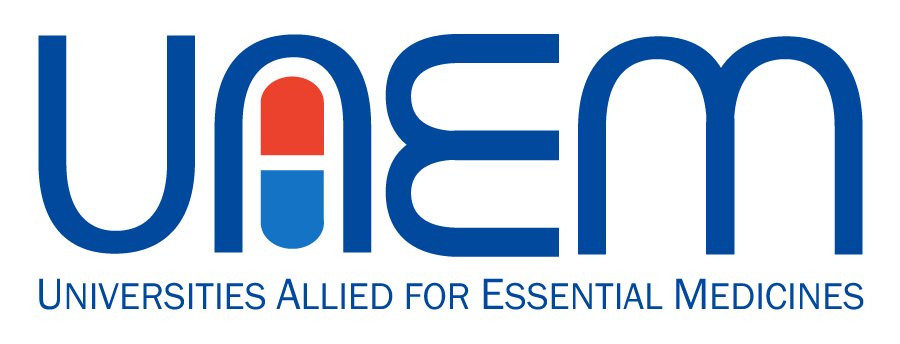Joint Comment on Drug Pricing & Access to Medicines in USMCA
Re: Docket Number USTR-2025-0004
November 3, 2025
We, the undersigned organizations, welcome the opportunity to provide comments on the operation of the Agreement between the United States of America, the United Mexican States, and Canada (USMCA) in advance of the joint review of the Agreement.
Our organizations believe that trade agreements must not stand in the way of health and access to medicines. As such, there is an urgent need for the U.S., Mexico, and Canada to revise the USMCA to remove provisions that keep medicines prices high, discourage competition, and ultimately impede availability and access to medicines.
The most effective solution is to remove the intellectual property chapter from the Agreement entirely. Decisions regarding the balance between the rights of patent holders and the right to public health should be made through democratic policymaking, not rushed through international trade agreements negotiated in secret.
If the intellectual property chapter remains in the Agreement, we urge the U.S. and its trade partners to prioritize removal of the following pharmaceutical-related intellectual property provisions to ensure that a revised agreement serves the public interest and does not limit access to medicines [1]:
• Patent term extensions. Patent term extensions grant corporations additional years of monopoly beyond the internationally agreed 20-year term. The USMCA requires parties to provide extensions to patent monopolies for perceived delays in patent review and marketing approval processes (Articles 20.44 and 20.46). Term extensions significantly delay access to generics and thereby restrict access to affordable medicines and increase health system costs.
• Market exclusivity. Regulatory exclusivities grant additional monopoly protections beyond those provided by patents. The USMCA allows for at least five years of market exclusivity for new pharmaceuticals (Articles 20.48 and 20.48.2), thus preventing approval of generic alternatives during that time period. These exclusivities run independent of patent protection, blocking generic market entry even when a medicine is not protected by a patent or when public interest exceptions to patent protections are needed to facilitate access to medicines and respond to health emergencies.
• Patent linkage. Patent linkage mechanisms link medicine marketing approval status to patent status. The USMCA requires party governments to provide notice and opportunity for a patent holder to seek remedies for potential patent infringement before marketing a competing product (Article 20.50). Under patent linkage, even spurious patents can be used to delay the introduction of generics. Patent linkage systems can facilitate abuse since the financial benefits of blocking generic competition often outweigh the risks of penalties.
• Enforcement provisions beyond internationally agreed standards. The USMCA’s enforcement provisions give companies expanded remedies beyond the generous infringement remedies they already have, further upsetting the balance between the representation of industry interests and the public interest. Provisions such as Article 20.71 (criminal enforcement of trade secrets), 20.77 (sanctions for unauthorized disclosure by officials), 20.81.4 (enhanced damages), and 20.82 (border measures) grant pharmaceutical corporations broad tools to suppress generic competition and intimidate regulators. These mechanisms risk chilling legitimate policy actions aimed at expanding access to medicines.
The USMCA in its current form puts the private interests of pharmaceutical corporations above public health. We urge the U.S., Mexico, and Canada to pursue a revised USMCA that removes pharmaceutical-related intellectual property provisions in order to help address the shared problem of excessive drug prices and ensure all parties can protect health and provide timely access to affordable medicines.
Signed,
Afro-Canadian Positive Network of BC
Alliance for Democracy - OregonAmerican Economic Liberties Project
American Friends Service Committee
Christian Council of Delmarva
Communications Workers of America (CWA)
Economic Justice Action Group of the First Unitarian Church/Portland OR
Faces of Pharmacare
Global Network of Black People working in HIV
Health GAP
Housing Works, Inc.
Interfaith Center on Corporate Responsibility (ICCR)
Médecins Sans Frontières/Doctors Without Borders USA (MSF)
Misión Salud
National Nurses United
NETWORK Lobby for Catholic Social Justice
Occupy Bergen County
People’s Health Movement - North America
Project on Organizing, Development, Education, and Research (PODER)
Public Citizen
Rise Up WV
Salud y Farmacos
Social Security Works
Socially Responsible Investment Coalition
T1International
Treatment Action Group
Unitarian Universalists for a Just Economic Community
United Church of Christ
Universities Allied for Essential Medicines
Voices of Health Care Action
[1] These recommendations are based on analysis by Public Citizen and Health GAP: Essential Changes Needed to the USMCA to Remove Impediments to Public Health.
